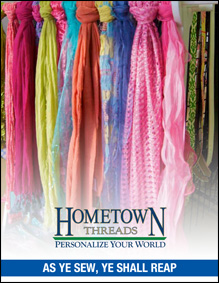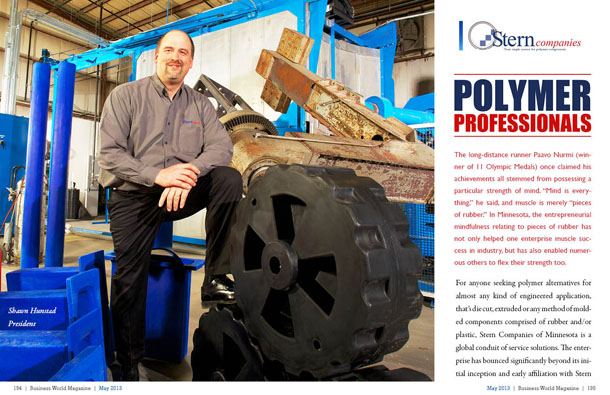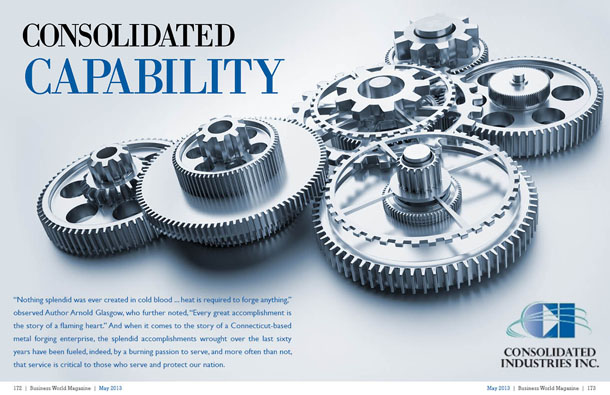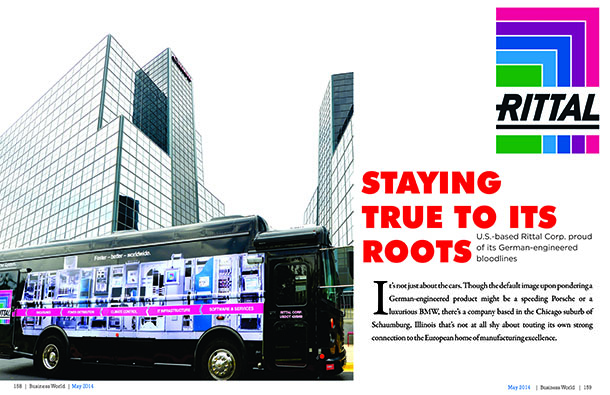As Ye Sew, Ye Shall Reap

The craft of embroidery dates back to the dawn of civilization. From the moment primitive man discovered strands of threaded material could conjoin pieces of fur, it was soon determined the same technique could add distinctive embellishments directly sewn into the fabric. From functional applications, embroidery was then elevated into an art form unto itself. Evidence of such artifacts is woven among antiquities of every culture on Earth – that’s just world history. Today, there’s a company making history in the franchise world by offering options to modern mankind which are high in customization, yet low in cost. For entrepreneurs, here’s proof that with embroidered excellence comes great opportunities to earn.
If there’s been a downturn trend to the national economy, it hasn’t impacted operations at Hometown Threads, a franchise specializing in the production and retail of custom embroidered goods that cater to the demands of commercial clients and consumers-at-large. In contemplating economics of the era, President Bryan Hatch says, “If anything, it has helped our business prosper.â€
Referring to their commercial accounts, Hatch says the more that companies have focused on their bottom lines and tried to save money, the more they’ve discovered the benefit of doing business with Hometown Threads. As much as that may involve the aspect of affordability, it is important to understand that the affordability simply wouldn’t exist were it not for certain fundamentals that govern Hometown Thread’s approach to business. Among these is absolute willingness to accommodate any size order. Atypical of other companies engaged in essentially the same kind of service, Hometown Threads does not put restrictions on “minimum†purchase orders. That kind of sense, relates to real dollars and cents, because why in the world should someone have to order 50 custom embroidered shirts, when they may only need ten? This is the very demand that some companies foist on to their customers, but at Hometown Threads, the focus is on fulfilling orders, large or small, be it from enterprise or individual. For all the creative, decorative and aesthetically alluring accoutrement of embroidered monograms, logos, insignias and you-name-it novelty, this is a business that makes it easy to do business, and that’s a good thing because, as Hatch observes, “the demand for personalized goods is continuing to grow.â€
The Early Hirsch-tory
While one could certainly make the case that society’s love affair with custom embroidered products has persisted through the ages, historically, the ability to produce such goods, especially that of genuine quality, was a time consuming task and test of patience. Desire exceeded ability to readily fulfill demand. The origin of Hometown Threads aligns with another company who introduced the means, and mechanisms, that allowed greater accessibility to embroidered goods.
The late Harry Hirsh, founder of Hirsch International Corporation, launched his company in 1968 and became widely known for selling a line of knitting machines vital to the production of sweaters, gloves and more. Over time, as other innovations came along, Hirsch would add to his inventory, but by and large, the early contraptions were designed for use in larger, commercial enterprise. Hirsch developed relationships with companies throughout the world. After meeting principals of Japan’s Tajima Industries, he secured a distribution agreement involving their specially made embroidery machines. This relationship allowed Hirsch to provide Tajima with insight into needs of American customers and industry alike. In turn, Tajima went on to engineer advancements involving thread trimming, color changing, multi-needle heads and innovations that allowed what was once done by hand, to be done by machine; and the machines, like trends with radios and televisions, didn’t have to be so oversized.
With the emergence of computers, came new capabilities that further changed the playing field. At the time, the whole system of converting an original design of artwork into an embroidery still necessitated manual labor (processes of “punchingâ€) that was meticulously time consuming. The digital revolution changed all that, and Pulse Microsystems was a company at the forefront of technological developments involving software essential to the design of embroidery. The company was acquired by Hirsch International which went public in 1994. Harry Hirsch had passed away some years earlier, but he lived and served through an amazing era of innovation highlighted by incredible technical advancements that altered industry and offered consumers so much more access to personalized goods. This history is important because when one sees a finely stitched monogram or business logo on a shirt, it may not be readily observed that the mechanism that helped produce it is a modern marvel that reflects advancements in engineering, computer technology and digital art. And for all its wondrous function, the use of these devices was something largely controlled by large companies. The focus at Hirsch involved selling equipment. It would take other brains to realize there was yet greater potential, not from the mere selling of machines, but more importantly, in providing entrepreneurs with the means to start and successfully operate their own business.
The Inner Weavings
Following a visit to a Hometown Threads store six years ago, Wayne Brown of Augusta, Georgia, determined to buy the company, and he did. As Chairman and CEO, Brown’s philosophies on customer service, team building and hands-on leadership have helped Hometown Threads emerge as one America’s fastest growing retail franchises. There are currently more than 40  locations throughout the United States, with many strategically centered within high traffic stores such as Wal-Mart.
While each store is capable of producing embroidery of almost anything that catches your eye, there is a lot more going on than meets the eye. For as finely tuned as the equipment may be, so too is the system that CEO Brown and President Hatch have perfected in growing the franchise. This has included investments in tools, technologies, research and time, which is now paying off in dividends and enabling professionals to fulfill their own dreams for success.
The franchisees will find these stores on the low-cost side of typical investments, but Hatch provides a list of all the services that come with it: on-site real estate consulting, lease negotiation, marketing assistance, human resource training, vendor network access, mass buying discounts, inventory management consulting, marketing trends analysis – and basically, everything you need to know to operate from front to back end. But not just operate, to operate at peak efficiency and profitability.
“We have created systems that enable a successful operation,†says Hatch. “I guess if you had to look at it, as a franchisee versus independent, when someone starts a business, there are so many decisions to make, and so many unknowns to encounter. With us,  someone wouldn’t have to make uneducated guesses. We’re providing an entire system, like a business in a box, and that’s a major benefit for someone starting a business.â€
The principals of Hometown Threads have established relationships with vendors and commercial clients, have conducted in-depth analysis of market trends to know what sells and when it sells, and basically know what works and what doesn’t. Franchisees benefit from this exchange of knowledge. And for all the focus placed on serving customers, the administration extols that much more effort in serving franchisees and that means being available each and every day.
Franchisees undergo three weeks of intricate training which includes learning how to operate the machinery. Hatch says that in addition to customer service skills, leadership skills and appreciation for embroidered art, potential franchisees could benefit from certain technical prowess.
In terms of the future, Hatch says the focus is not rapid expansion, but smart expansion. He envisions increased awareness of Hometown Threads as a nationally recognized brand with a reputation that is as consistent with quality as the goods they produce. He also says their mission is not so much about growing stores, but growing their base of customers. This, in turn, helps all franchisees.
As they grow the franchise, Hatch says their goal is to connect with not just anyone, but someone who can contribute to the work being done by all.
“Not anyone can do this, it’s not like a food business, as a production company, we produce. There’s industrial machinery involved, software systems have to be learned along with store operations,†says Hatch. “We want to talk to people who like to sew, who like to create, and who have a passion for people… it takes more than the right kind of person, but the right kind of personality.â€
In focusing on serving their franchisees as strongly as they serve their customers, producing products that fulfill the growing demand for personalized good, Hometown Threads will continue to winningly weave its way to higher acclaim; further emerging as more than mere merchants of embroidery, but an excellent business model.








